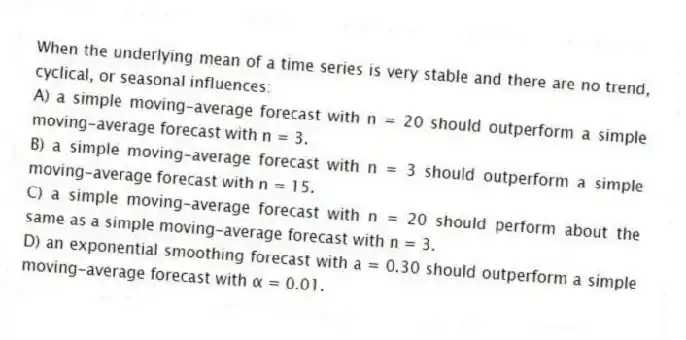
When the underlying mean of a time series is very stable and there are no trend, cyclical, or seasonal influences:
A) a simple moving-average forecast with n = 20 should outperform a simple moving-average forecast with n = 3.
B) a simple moving-average forecast with n = 3 should outperform a simple moving-average forecast with n = 15.
C) a simple moving-average forecast with n = 20 should perform about the same as a simple moving-average forecast with n = 3.
D) an exponential smoothing forecast with a = 0.30 should outperform a simple moving-average forecast with α = 0.01.
Correct Answer:
Verified
Q87: Demands for a newly developed salad bar
Q88: _ is a causal method of forecasting
Q89: A(n) _ measures the direction and strength
Q90: The marketing department for a major manufacturer
Q91: Which one of the following statements about
Q93: Demand for a new five-inch color TV
Q94: Time-series analysis is a statistical approach that
Q95: The naive forecast may be adapted to
Q96: A simple moving average of one period
Q97: Which one of the following statements about
Unlock this Answer For Free Now!
View this answer and more for free by performing one of the following actions

Scan the QR code to install the App and get 2 free unlocks

Unlock quizzes for free by uploading documents